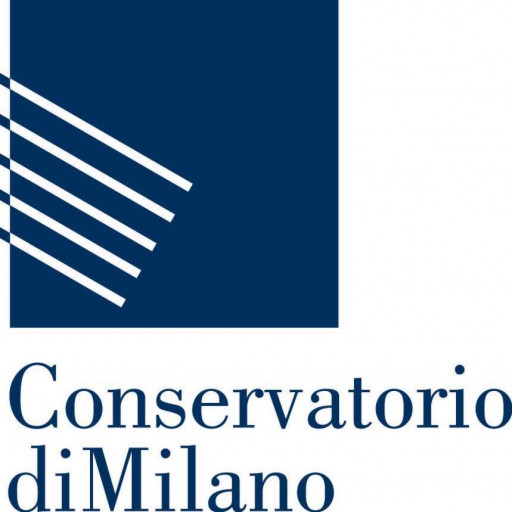Photos of university / #ucl
Education, Gender and International Development is an interdisciplinary master's program offered by University College London that aims to equip students with the critical skills and in-depth knowledge needed to analyze and address the complex issues related to education, gender equality, and international development. This programme combines theories and methodologies from education, gender studies, development studies, and international relations to prepare graduates for careers in research, policy-making, advocacy, and international organizations focused on sustainable development and social justice. The curriculum emphasizes a multidisciplinary approach, allowing students to explore topics such as gender-aware education policies, human rights, social inclusion, and the impact of global economic and political structures on education systems worldwide. Students will engage with contemporary debates on gender equality and educational access, learning to design, implement, and evaluate programs aimed at reducing disparities and promoting equitable development. The program offers practical skills through workshops, seminars, and collaborative projects, fostering both critical thinking and policy analysis capabilities. With distinguished faculty who are experts in their fields, students will benefit from a vibrant academic community that encourages innovative research and informed discourse. The programme also features opportunities for fieldwork and internships, providing real-world experience in relevant sectors such as non-governmental organizations, international agencies, and government bodies. Graduates of Education, Gender and International Development will be well-prepared to contribute to global efforts to improve education quality and accessibility while promoting gender equality and social development at local, national, and international levels. The course typically attracts students from diverse backgrounds, including those with prior experience in education, social sciences, development, or gender studies, creating a dynamic and enriching learning environment. Upon completion, alumni often pursue careers in policy analysis, program management, academic research, advocacy, and consultancy roles that influence education and development policies worldwide.
The programme provides students with the opportunity to follow a course of study unique in the UK, looking at a range of current issues and debates, including discussions about girls’ access to and achievements in school; femininities, masculinities and gender relations within education; the ways in which the state and society shapes the politics of gender and education; and approaches to social justice and education.
Students undertake modules to the value of 180 credits.
The programme consists of two core modules (60 credits), and either two optional modules (60 credits) and a dissertation (60 credits), or three optional modules (90 credits) and a report (30 credits).
Core modules
- Education and International Development: Concepts, Theories and Issues
- Gender, Education and Development
Optional modules
Students select either two or three optional modules from a range across UCL Institute of Education (IOE) Master's-level offering, including:
- Education and Development in Asia
- Education and Muslim Communities
- Education, Conflict and Fragility
- Gender, Sexuality and Education
- Learners, Learning and Teaching in the Context of Education for All
- Planning for Education and Development
- Promoting Health and Wellbeing: Planning, Practice and Participation
Dissertation/report
All students undertake an independent research project which culminates in either a 20,000-word dissertation (60 credits) or 10,000-word report (30 credits), focusing on gender and education in a low- or middle-income context in some form.
Teaching and learning
Teaching is delivered by lectures or other structured inputs by staff; participant-led presentations and discussions based on selected readings or a clearly specified project; tutor-led seminars; workshops; problem/issue-based paired and small-group work; occasional debates and occasional invited speakers; reflections on film and video inputs. Assessment is via various forms of coursework including discursive essays, critical analysis of empirical research, reviews of literature, and the dissertation or report.
Fieldwork
Students may undertake fieldwork in relation to their research for their dissertation or report, but it is not a requirement. If undertaken, fieldwork must be self-funded.
Applicants should normally hold a minimum of a second-class UK Bachelor's degree or overseas qualification of an equivalent standard, and demonstrate commitment and genuine interest in issues relating to gender, education and international development. They will normally have a minimum of six months' experience living/working in a low/middle-income country. Applicants who do not meet these criteria may be considered on the basis of an excellent personal statement
The MSc Education, Gender and International Development at University College London offers a range of financing options to support students throughout their studies. Prospective students are encouraged to explore various funding sources, including institutional scholarships, external grants, and financial aid, to assist with tuition fees and living expenses. UCL provides a limited number of scholarships specifically for students enrolled in this program, which are typically merit-based and may cover partial or full tuition fees. Applicants are advised to check the UCL Scholarships and Funding database for current opportunities and application procedures. In addition, students can consider external funding bodies such as governmental agencies, international organizations, and charitable foundations that offer scholarships for students studying international development and gender studies. Many students also finance their education through personal savings, part-time work, or student loans, depending on their home country’s financial support system. UCL's Student Finance Office provides comprehensive guidance and support for students seeking financial assistance, including advice on loan options available within the UK or from external sources. It’s important to start the financing process early, as application deadlines for scholarships and funding opportunities vary and can be competitive. International students should also review visa requirements related to funding, as proof of financial means is often necessary when applying for a student visa. Additionally, some students may be eligible for joint funding programs or partnerships with governmental or non-governmental organizations working in education or gender equity sectors. For longer-term financial security, students are encouraged to plan their budget carefully, considering tuition fees, accommodation costs, health insurance, and daily living expenses. UCL provides an online cost calculator and financial planning resources to help students estimate their total expenditure. Overall, while there are multiple potential sources of funding, securing adequate financing requires proactive research and timely application to maximize the chances of obtaining necessary support.
The MSc in Education, Gender, and International Development at University College London (UCL) is a comprehensive postgraduate program designed to explore the complex interrelations between education, gender equality, and international development. This program aims to equip students with critical understanding and practical skills to analyze how education systems can promote social justice and gender equality across diverse cultural and socio-economic contexts. The curriculum covers a broad range of topics including theories of development, gender paradigms, educational policies, and global social change. Students will engage with interdisciplinary perspectives, drawing insights from economics, sociology, anthropology, and political science to understand the barriers to educational access and quality faced by different marginalized groups, particularly women and girls in developing countries.
The program emphasizes applied learning through case studies, policy analysis, and research projects. Students are encouraged to critically assess the impact of international agencies, governmental policies, and grassroots movements on educational development outcomes. The program also offers opportunities for fieldwork, internships, and collaborations with NGOs and international organizations, helping students gain practical experience and professional networks in the field of education and development.
Graduates of this program are prepared to work in various sectors including government agencies, international bodies such as the United Nations and UNESCO, non-governmental organizations, research institutes, and educational institutions. They are equipped to design, implement, and evaluate policies aimed at reducing educational disparities and promoting gender equality globally. The MSc program fosters an inclusive academic environment, welcoming students from diverse backgrounds and nations, thereby enriching classroom discussions and research with multiple perspectives.
UCL’s reputation for research excellence ensures that students are taught by leading academics who are at the forefront of education policy, gender studies, and international development. The program encourages a collaborative and multidisciplinary approach, preparing students to become innovative practitioners and researchers committed to creating equitable education opportunities around the world. Whether students wish to pursue careers in research, policy-making, advocacy, or further academic study, this program provides a solid foundation for making meaningful contributions to global educational and gender equality initiatives.








